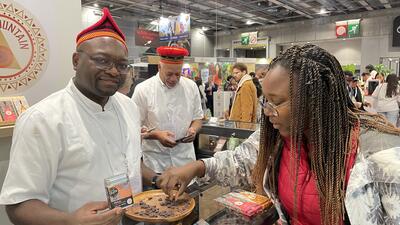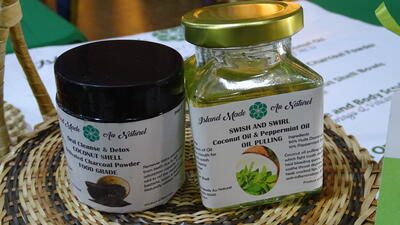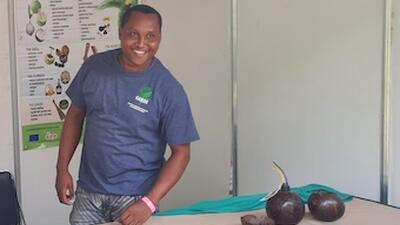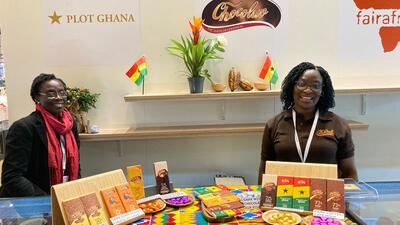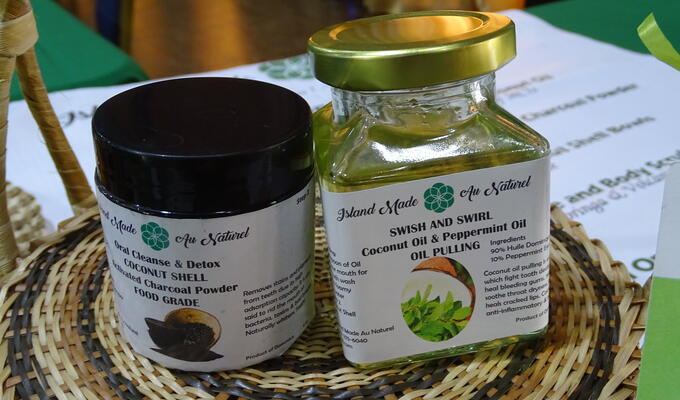
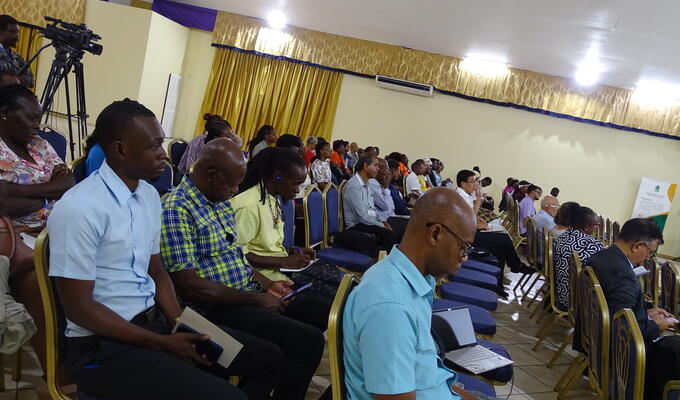


Strengthening the Caribbean coconut value chain. Next stop: Grenada
A four-day event looks at how the industry can advance through commercialization and agro-processing.
Grenada’s agricultural sector is still recovering from the damage caused by Hurricanes Ivan and Emily in the early 2000s. Recurring bouts of disease and pest infestation have dealt a further blow to coconut production, while COVID-19 proved that the island’s import reliance is unsustainable.
Today, Grenada is attempting to revamp its coconut industry. Boosting local production and consumption, with a focus on value addition, strengthens the Caribbean value chain. Grenada’s cuisine often includes coconut, and the country plans on leveraging this tradition.
More than 20 coconut farmers and manufacturers from across the region meet this week in Grenada for a holistic training on the sustainable development of the industry.
Grenada is one of 12 countries benefiting from the second phase of the EU-funded Alliances for Coconut Industry Development in the Caribbean project at the International Trade Centre (ITC). CARIFORUM Secretariat and other regional partners support the project.
Participation in the 12-15 June event fits within this framework by strengthening the capacity of coconut farmers and technical officers with innovative, sustainable techniques from farm to shelf.
‘I think that the exchange of ideas and knowledge will help in the development of the coconut industry in the region,’ said Sophia Searles, of Searles Agro Products in St. Vincent and the Grenadines.
Creating a chance to network and share
Training topics include agro-processing techniques, food safety implementation, coconut pest and disease management, tissue culture production for coconut, coconut farm management and climate-smart agricultural practices. Site visits to several local companies will provide hands-on opportunities for practical field sessions on the acclimatization of tissue culture coconut plants.
‘I’m looking to network and explore what can be done in the agro-processing of coconut,’ said Vanessa Brincēno, of Natural Tropical Products Company in Belize. ‘This training will help me learn more about what products I can make with coconuts.’
The session will encourage farmers and agro-processors to network and share experiences to help elevate their collective operations and build new value chain linkages.
‘We produce coconut oil and other products, but we have challenges in transportation for regional export,’ said Ricardo Vriesde, of Voorruitstrevend N.V. in Suriname. ‘I look forward to learning about the experiences of other processors and to make alliances with others in the region to promote our products.’
An exhibition called ‘Everything Coconuts’ runs throughout the four days, showcasing local, regional, and imported coconut products.
The goal is to see participants return to their countries knowing how to improve their enterprises. Local extension officers will share their new skills with their wider communities of farmers, who will then share their peers for a sustainable, exponential uptake of new strategies.
The event is convened by ITC, with EU funding, and includes the Grenadian Ministry of Agriculture, Land, Fisheries and Cooperatives, the Caribbean Agricultural Research and Development Institute, Jamaica’s Coconut Industry Board, and the Yucatan Scientific Research Center in Mexico (Centro de Investigación Científica de Yucatán – CICY).
About the project
The International Trade Centre’s Alliances for Action, the Caribbean Agricultural Research and Development Institute (CARDI) and important regional and national partners have been working since 2015 to facilitate alliances among actors at every step of the Caribbean coconut value chain through the Caribbean: Development of value added products and intra-regional trade to enhance livelihoods from coconuts CARIFORUM programme funded by the European Union.
Sustainable agriculture and processing practices, value addition and commercial alliances are some of the key tools leveraged. The goal of the project is to increase food availability and incomes of small-scale farmers through improved competitiveness of the coconut sector.




